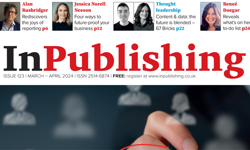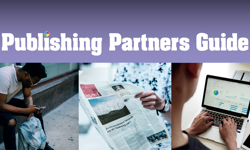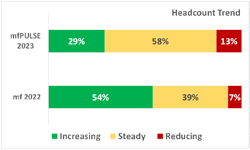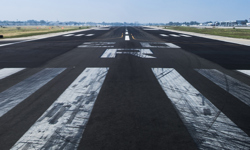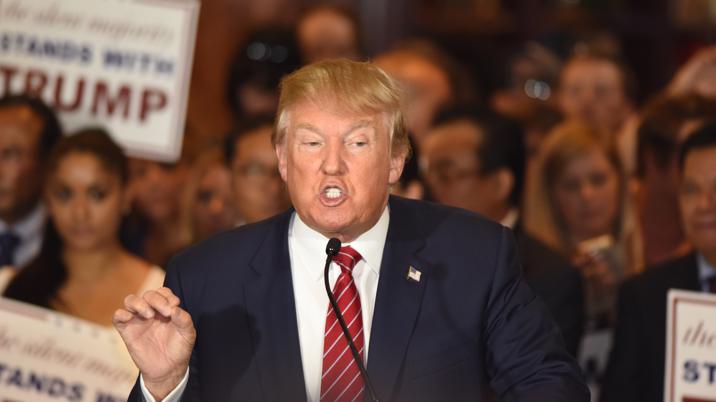
Journalist becomes PM
Jim Pickard on Twitter: "Boris Johnson once told a colleague of mine he wanted to enter politics because 'no one puts up statues to journalists', that pretty much sums it up."
Max Hastings in the Guardian on Boris Johnson: "I have known Johnson since the 1980s, when I edited the Daily Telegraph and he was our flamboyant Brussels correspondent. I have argued for a decade that, while he is a brilliant entertainer who made a popular maître d’ for London as its mayor, he is unfit for national office, because it seems he cares for no interest save his own fame and gratification."
Robert Harris in the Sunday Times on Boris Johnson's journalism: “He came and interviewed me. We had a very pleasant time. When the article appeared, he had manifestly made up a quote about me. He wrote, ‘His friends all call him Moneybags’ and this was in the headline of the piece. I said to him afterwards, ‘Who are these friends?’ He said, ‘I made that up actually!’ I’ve done a lot of interviews but I’ve never had a journalist cheerfully admit that they made something up.”
Former Sun editor David Yelland on Twitter: "The media’s support for Johnson’s coup is its lowest collective moment since the 1930s. Those editors that created Brexit and continue to lie to their readers about the realities should hang their heads in shame. History will judge them. It is a disgrace."
Marina Hyde in the Guardian: "Why are we getting journalists to run anything? What’s the rationale – that now they’ve torched their own industry, they should be allowed a go on the country? If the past couple of decades have shown us anything, it’s that journalists shouldn’t really have been in charge of even the journalism business. It is far from a coincidence that two of the leading architects of Brexit – Michael Gove and Johnson – were both journalists. Is it in any way surprising to find that the UK is very drunk and has already missed two deadlines?"
The Daily Telegraph after the Independent Press Standards Organisation upheld a complaint against a Boris Johnson column in which he inaccurately claimed the public favoured a no deal Brexit: "The writer was entitled to make sweeping generalisations based on his opinions and that the complainant had misconstrued the purpose of the article; it was clearly comically polemical, and could not be reasonably read as a serious, empirical, in-depth analysis of hard factual matters."
Reporting Brexit
David Cameron in the Sunday Times on the EU referendum campaign: "Almost the biggest problem I had was with the BBC. I felt it had lost its way in understanding the difference between balance and impartiality. The result was the voices of thousands of businesses arguing for remain given equal treatment to just a few prominent businesses coming out for leave. There were thousands of remain economists and a tiny number of Brexiteers, yet the BBC gave the latter the same weight as Nobel laureates."
Nick Cohen in the Observer: "Brexit has as much been a failure of British journalism as British politics. The basic questions have not been asked. You promised the electorate a trade deal with the EU should be the easiest in history. You said the German car industry would force Merkel to capitulate. Are you a fool or a liar or both? When the honourable exceptions have been listed, the British media have not held politicians to account or followed stories regardless of the consequences."
Dominic Cummings warning ministerial advisers they will be found out and sacked if they leak Brexit plans to the press, as reported by The Times: “My worth to journalists is far greater than yours. For the right story they will rat you out. You have no rights.”
Leader of free world continues attacks on free press
New York Times publisher A.G. Sulzberger: "In attacking American media, President Trump has done more than undermine his own citizens’ faith in the news organisations attempting to hold him accountable. He has effectively given foreign leaders permission to do the same with their countries’ journalists, and even given them the vocabulary with which to do it. They’ve eagerly embraced the approach. My colleagues and I recently researched the spread of the phrase 'fake news,' and what we found is deeply alarming: In the past few years, more than 50 prime ministers, presidents and other government leaders across five continents have used the term 'fake news' to justify varying levels of anti-press activity."
Bloomberg White House reporter Jennifer Jacobs at the Osaka Summit: "Trump also bonded with Putin over a scorn for journalists. 'Get rid of them. Fake news is a great term, isn't it? You don’t have this problem in Russia, but we do.' 'We also have,' Putin answered, in English. 'It’s the same.' They shared a chuckle."
The Washington Post, on the anniversary of the murder of journalist Jamal Khashoggi, confronts Saudi Crown Prince Mohammed bin Salman: "He should stop offering half-truths and accept full responsibility for ordering the murder. We don’t expect that to happen anytime soon. History will show that our lost friend and colleague Jamal was on the right side of the debate that Mohammed bin Salman thought, mistakenly, he could win with a bone saw."
Bryan Cranston, after winning a Tony Award for his portrayal of a broadcast journalist in Network: “I would like to dedicate this to all the real journalists around the world, both in the press – the print media – and the broadcast media, who actually are in the line of fire with their pursuit of the truth. The media is not the enemy of the people. Demagoguery is the enemy of the people.”
White House press secretary Stephanie Grisham asked by the Washington Post if Donald Trump lies: “I don’t think they’re lies… I think the president communicates in a way that some people, especially the media, aren’t necessarily comfortable with. A lot of times they take him so literally. I know people will roll their eyes if I say he was just kidding or was speaking in hypotheticals, but sometimes he is. What I’ve learned about him is that he loves this country and he’s not going to lie to this country.”
Challenges of local journalism
Kentish Gazette series editor Joe Walker on Twitter: "Last week our new reporter Brad Harper vomited after taking part in an oyster-eating contest. Yesterday a golden retriever snatched a sandwich from his hand as he worked on a story about dog poo hotspots. Welcome to local journalism."
Manchester Evening News political and investigations editor Jennifer Williams in the Observer: “I keep being asked when I’m moving to London as my work’s getting known ‘nationally’. I’d rather ask a different question: why aren’t there more reporters like me all over the country? Why are places outside London not properly represented?"
Cairncross Review: "Most national and regional news publishers are generating good profits, with margins of 10% or more. But for several publishers, a large proportion of those profits is being used to pay down debts or pension liabilities (as in the cases of Johnston Press and Reach/Trinity Mirror respectively). As a result, they have reduced staffing, closed local offices, and have less money available for investment in the substantial innovation that a successful digital future requires."
Lyra McKee
The Belfast Telegraph in a leader after journalist Lyra McKee was shot dead during rioting in Derry: "In spite of her tender years, Lyra was a reporter of the old school. She was always curious and she was never the sort who would sit behind a computer screen when there was a scene she ought to be at or someone she needed to speak to in person. It will be of little consolation to her heartbroken family but she died doing a job she loved and was born to do."
Paywalls going up
The Times in a leader on job cuts by digital publishers: "The Times has long argued that quality journalism should not be given away for free. Trusted news is expensive to produce and it is only right that readers should pay for it. Other publishers are finally accepting this logic. Last week Condé Nast, the magazine publisher, said that it would put all of its content behind a paywall. A shift towards more rational business models should improve the environment for good journalism. It will allow publishers to compete on the quality of their content rather than simply on sensationalism and the number of eyeballs reached."
Harry & Meghan
Prince Harry in a statement on the decision by the Duchess of Sussex to sue the Mail on Sunday for the misuse of private information, infringement of copyright and breach of the Data Protection Act: "Though this action may not be the safe one, it is the right one. Because my deepest fear is history repeating itself. I’ve seen what happens when someone I love is commoditised to the point that they are no longer treated or seen as a real person. I lost my mother and now I watch my wife falling victim to the same powerful forces."
Duchess of Sussex told Tom Bradbury in an interview for ITN News her friends warned her against marrying Prince Harry, saying: "You shouldn't do it because the British tabloids will destroy your life."
The state of UK media
Paul Dacre in The Spectator: "The British media generally is in a dreadful state: Sky, a great British success story, now owned by the Americans; ITV’s shares on the floor amid rumours of a foreign merger; the ubiquitous Johnston Press bankrupt; the cadavers of the once mighty Mirror and Express being asset-stripped; Murdoch’s News UK setting aside around half a billion pounds for damages to phone-hacking victims; the Guardian, with its shrill feminism and hard-left juvenilia, dependent on charity; the Standard (what sublime hypocrisy is its editor George Osborne’s support for Boris) being investigated for its financial links to a Saudi regime that murders journalists; and the BBC, staffed by kids, run by an OAP, obsessed by filling every vacant post with women and dwarfed by the streaming giants."
England cricket hero Ben Stokes on a Sun story about a tragedy that affected his family before he was born: “This is the lowest form of journalism, focused only on chasing sales with absolutely no regard for the devastation caused to lives as a consequence. It is totally out of order."
Farewells
From The Times obit on former Mirror journalist John Knight: "Knight belonged to Fleet Street’s finest tradition of bons vivants. Once he disappeared for lunch for three days. Upon his return he was asked where he had been. 'On the piss,' he said. 'Oh, thank goodness,' replied his editor. 'We were worried in case you were ill'.”
The Times in the obit of Steve Dunleavy, the New York Post journalist who died aged 81: "Steve Dunleavy would do anything for a story. He once approached Ava Gardner in a nightclub and she threw a glass of champagne in his face. His subsequent report began: 'Last night, I shared a glass of champagne with Ava Gardner. She threw it; I wore it'.”
This article was first published in InPublishing magazine. If you would like to be added to the free mailing list, please register here.


